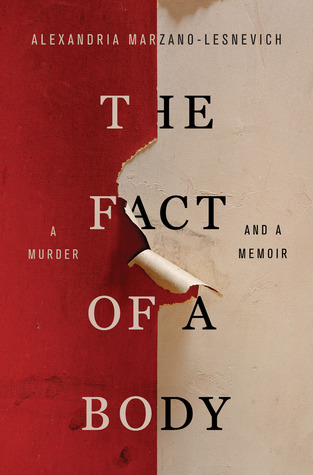"I have been driven all along by the belief that there is a knot at the heart of the collision between me and Ricky that will help me make sense of what will never be resolved. The way my body is evidence. The way I carry what my grandfather did in my body. I carry it through my life."
The Fact of a Body, by Alexandra Marzano-Lesnevich is a memoir intertwined with a a true crime story, and is unlike anything else I can recall reading. The author, an attorney, finds herself drawn to a death row case that challenges her belief that no person should die for their crimes, no matter how heinous. Through her research of the case, through tens of thousands of pages of documents, interview, videos, and photographs, visits to the small town where the crime occurred, and conversations with the killer himself, Marzano-Lesnevich is forced to confront her own abusive past and how it has formed her into the person she is today. Painful to read, the book alternates between perspectives as Marzano-Lesnevich reconstructs the murder of a young boy in Louisiana and his killer's trail with her own experiences as a survivor of childhood sexual abuse.
The two crimes at first appear so different. On one hand, we have a young boy in an impoverished town murdered by a man with a documented history of sexual violence. On the other, a young girl, from a well-known family in a picture perfect town, abused by her grandfather for years. Initially the only common thread we see is the sexual violence; however, Marzano-Lesnevich skillfully draws out common themes of intergenerational trauma and loss, what drives a family to protect its own, secrecy, and the slippery nature of love and forgiveness. The writing is lovely, descriptive, and methodical. The author never veers into the exploitative, and even when describing moments of great harm or pain, does so with gravity, respect, and yes, even empathy, for all involved. More than anything, I loved the ways in which she explored these complicated grey areas, whether created by law or emotion. "Forgiveness is too simple a word. They helped make me. They did such harm." Both of these things can be true, and perhaps, there can be healing in acknowledging the spaces between.
4/5 stars.

No comments:
Post a Comment